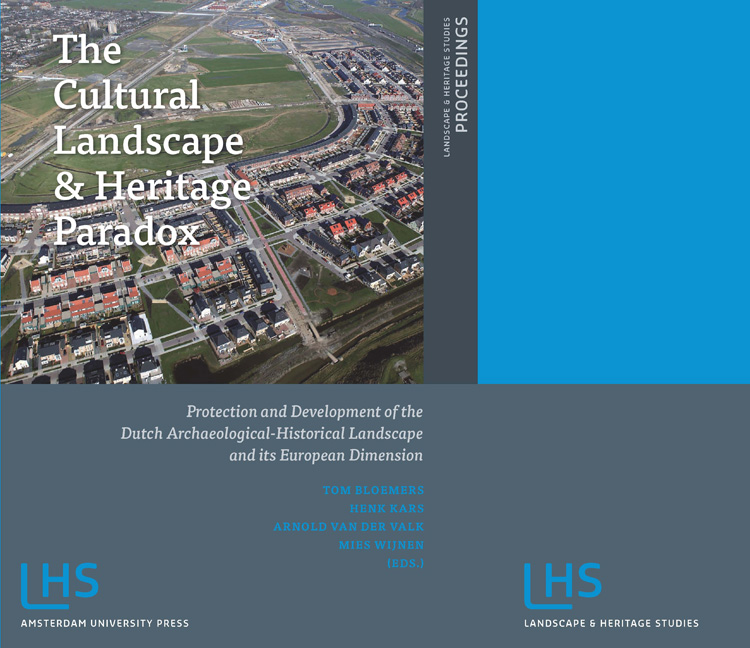 The Cultural Landscape and Heritage Paradox
The Cultural Landscape and Heritage Paradox Published online by Cambridge University Press: 21 January 2021
ABSTRACT
This paper discusses a number of studies that link research-based knowledge to actions resulting in processes of decision-making, implementation and change in the protection and development of the archaeological-historical landscape. These studies on Dutch as well as on a few European regions or subjects are discussed from the perspective of sustainability, a wide-ranging term applied to economic as well as ecological systems but which also fits perfectly well to cultural resource management. It is concluded from the studies presented here that, if compared to a dozen years ago, much progress has been made in linking knowledge to sustainable action in the protection and development of the cultural landscape, while the se actions have simultaneously contributed to our knowledge about this landscape.
Research has shown that the methodology of action research is an important tool in linking knowledge to action; this paper therefore provides an overview of the characteristics of action research seen in the light of its use in cultural resource management studies where theory and practice do meet. All studies discussed here meet most, if not all, criteria of this methodology that creates situational and particular knowledge in the interaction between researchers and practitioners in cultural resource management. This interaction is most apparent in two regional studies in the Netherlands as well as in studies in Germany, Estonia and Scotland, and enables present generations to experience the archaeologicalhistorical landscape not only as an inheritance of the past but also as a source for research and imagination for future generations.
KEYWORDS
Action research; cultural resource management; sustainability
INTRODUCTION
Many scientists still believe that good research is the exclusive domain of academic institutes and that the results will be taken up automatically in society where needed. Bringing the research results into the public domain by publishing in scientific journals is implicitly regarded as the end of the researcher's responsibility. This perspective has perhaps been a good characterization for the freedom and independence of basic and curiosity-driven research for a very long time, but for research that aims to influence decision-making towards generating actions with a societal impact, the reality is different.
To save this book to your Kindle, first ensure no-reply@cambridge.org is added to your Approved Personal Document E-mail List under your Personal Document Settings on the Manage Your Content and Devices page of your Amazon account. Then enter the ‘name’ part of your Kindle email address below. Find out more about saving to your Kindle.
Note you can select to save to either the @free.kindle.com or @kindle.com variations. ‘@free.kindle.com’ emails are free but can only be saved to your device when it is connected to wi-fi. ‘@kindle.com’ emails can be delivered even when you are not connected to wi-fi, but note that service fees apply.
Find out more about the Kindle Personal Document Service.
To save content items to your account, please confirm that you agree to abide by our usage policies. If this is the first time you use this feature, you will be asked to authorise Cambridge Core to connect with your account. Find out more about saving content to Dropbox.
To save content items to your account, please confirm that you agree to abide by our usage policies. If this is the first time you use this feature, you will be asked to authorise Cambridge Core to connect with your account. Find out more about saving content to Google Drive.